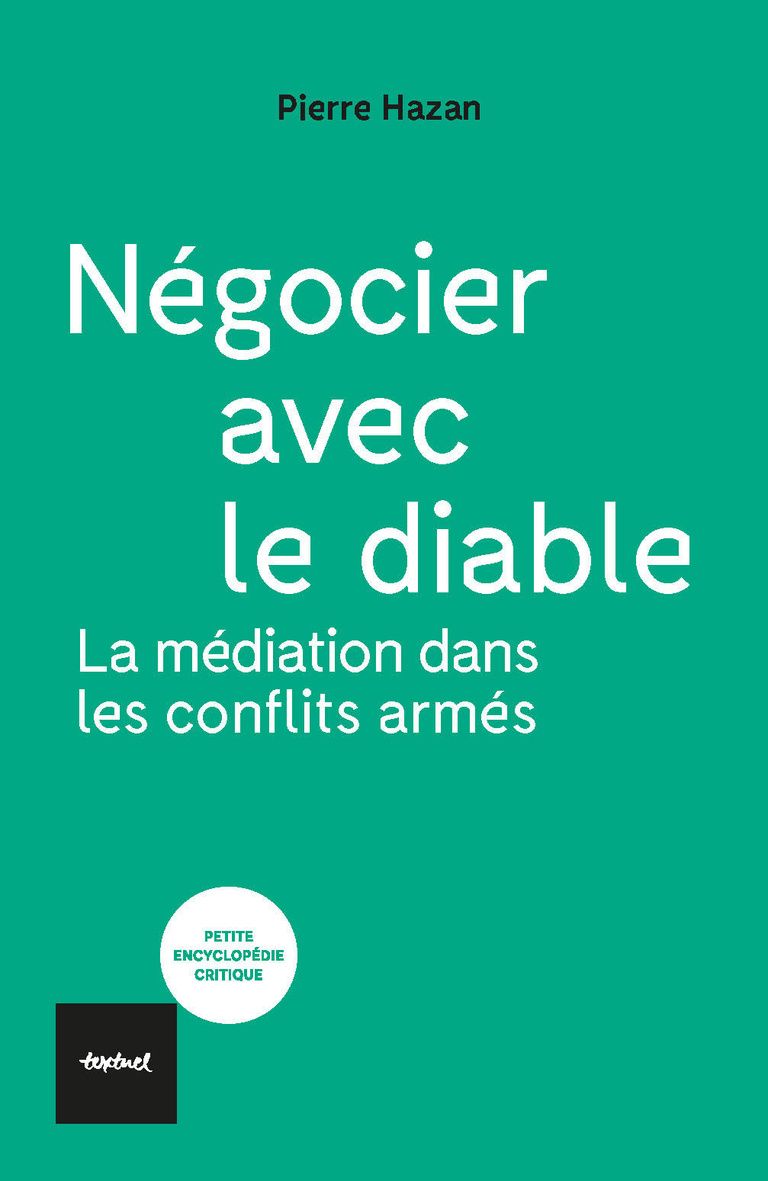Pierre Hazan, on negotiating with the devil
On negotiating with the devil
Today in The G|O, an interview with Pierre Hazan, Senior Advisor of the Centre for Humanitarian Dialogue (HD) in Geneva, author of Negotiating with The Devil, in French, English edition forthcoming. A seasoned mediator, Hazan tells me that at this point, the likelihood of bringing the warring parties to the table to discuss peace is indeed totally unrealistic. But he is also somewhat reassured by the recent discussions that took place between Sergei Shoigu, the Russian defense minister, and Lloyd Austin, his US counterpart.

Negotiating with the devil?
Philippe Mottaz: Should we negotiate with the devil? With the war in Ukraine, this is a very timely interrogation. As a mediator, I reckon your answer would be yes, but as of today, do you believe that the warring parties could be brought to the negotiating table?
Pierre Hazan: It seems unthinkable at this stage, at least if we are talking about a peace process. We are clearly in a phase of escalation, where both sides feel they would lose something in talking: Ukraine wants to recover all of its territories, including Crimea, and thus return to its 1990 borders. As for Russia, it is intransigent on what it calls its territorial integrity, which in its eyes includes Crimea and the four regions it has just annexed.
We recently saw, nevertheless, the conclusion of the Black Sea Grain Initiative (BSGI), the result of negotiations in which the Geneva-based Centre for Humanitarian Dialogue (HD) played a significant role …
Yes, fortunately, the situation does not exclude strictly transactional agreements of various kinds, such as the BSGI or the exchange of prisoners, technical accords like the one about the Zaporizhia nuclear power plant, or humanitarian agreements.
Staying with the BSGI, Russia is now threatening not to extend its agreement on grain and fertilizers with the UN. How do you interpret Moscow's position?
Yes, Russia is indeed making statements to that effect. But I think that before dropping out of the agreement—it expires on November 19—Russia will carefully weigh its interests, starting with the fact that these sales bring in foreign currency. Its exports also go to Arab and African countries. I think that Moscow's decision to renew or abrogate the agreement will reveal insights into how Russia views its relationship with the Arab and African world today.
We read that the American administration will do everything to ensure that Joe Biden does not meet Vladimir Putin at the G20 summit. But shouldn't they precisely seize the opportunity to meet?
They won't. But I note that the Russian and American Ministers of Defense, Sergei Shoigu and Lloyd Austin, have spoken to each other and that Shoigu has also spoken to his Turkish, French, and British counterparts. I sense that we are witnessing the establishment of something resembling the "red telephone" of the Cold War between the Kremlin and the White House, a mechanism of exchange and minimal dialogue to minimize the risk of dangerous misunderstanding or uncontrolled escalation. Interestingly, both parties have also made public that they talked to each other, to indicate that this is not the traditional diplomatic “backchannel” way. In this minimal dialogue, they want to show that they are rational because let's admit it, the Western world has every reason to be worried.
More broadly, you write that diplomatic mediation has profoundly changed and that there has been, in your opinion, a tipping point with NATO’s intervention in Libya.
There has indeed been a real fundamental transformation over the last ten years. The 1990s were marked by a series of peace agreements led by the nations and, in most cases, conducted by the UN with the US blessing. This was part of the Pax Americana. But it all ended in 2011 with NATO's intervention in Libya, justified on humanitarian grounds in the name of the “responsibility to protect” (R2P) civilian populations. Russia and China had decided not to oppose this intervention at the UN Security Council. But when the military coalition led by the Western countries toppled Gaddafi, the Russian and Chinese governments considered they had been deceived, that this intervention was from the beginning to bring about regime change, which they viscerally objected to. From that moment on, Russia fiercely opposed any action by the international criminal justice system. It systematically tries to defeat the concept of the responsibility to protect (R2P), the intervention of international justice and human rights mechanisms, believing that the Western world controls them.
Russia's behavior in Syria, bombing civilian populations and infrastructure, foreshadowed what we see in Ukraine.
The geopolitical tensions are now such that the system is paralyzed. What does the Russian president do when António Guterres offers the UN's good offices? He sends two missiles to Kyiv when the Secretary-General is there!
International Geneva has a long tradition of mediation. Do you see a role for Switzerland in this crisis?
Switzerland's position today is delicate. Publicly at least, Russia no longer considers it neutral. It is clearly in the Western camp and could hardly disassociate itself from the Europeans and the Americans without creating a diplomatic crisis with its allies. A part of public opinion in Switzerland would not understand this either. There is, therefore, a real challenge for Switzerland and International Geneva to show that it has not lost its role as a bridge between the two sides. The fact that Geneva is hosting the discussions between Azerbaijan and Armenia is a first encouraging sign, but it is not enough. The challenge for Swiss diplomacy today is to remain at the storm’s center. It is also a guarantee for its protection and its interests.
-PHM
